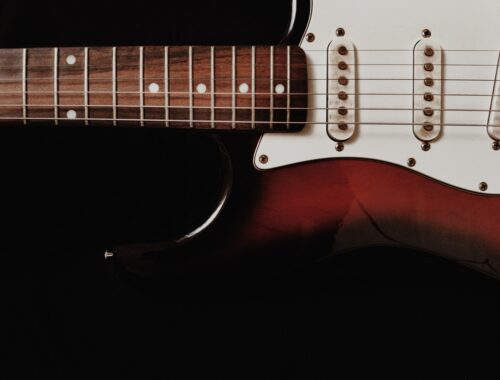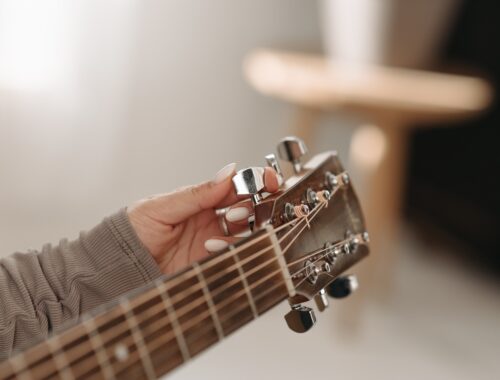
Mastering Guitar Fretboard Memorization: The Key to Becoming a Versatile Guitarist
The guitar fretboard is the canvas upon which every guitarist paints their musical masterpiece. It’s a vast landscape of notes, chords, and scales that, when mastered, empowers you to create beautiful music. Fretboard memorization is a fundamental skill for guitarists of all levels, from beginners to advanced players. In this comprehensive guide, we will explore the importance of fretboard memorization, provide practical tips and techniques to help you conquer the fretboard, and discuss its profound impact on your guitar playing.
The Significance of Fretboard Memorization
Fretboard memorization is the process of knowing the location of every note on the guitar’s fretboard, including sharps, flats, and octaves. This knowledge is essential for several reasons:
- Efficiency: Knowing the fretboard reduces the time it takes to find the right notes, chords, or scales during a performance or practice session. You can seamlessly navigate the guitar, enabling smoother transitions between chords and scales.
- Creativity: When you understand the fretboard, your creativity can flourish. You can visualize and experiment with different patterns and note combinations, which leads to more imaginative and expressive playing.
- Transposition: Fretboard memorization makes it easier to transpose songs and chord progressions into different keys. You can adapt your playing to various musical situations.
- Ear Training: As you memorize the fretboard, your ear becomes attuned to the relationships between notes. This enhances your ability to play by ear, transcribe music, and improvise effectively.
- Music Theory Comprehension: Fretboard memorization complements your understanding of music theory. You can see how scales, chords, and intervals relate to one another spatially on the fretboard.
Practical Tips for Fretboard Memorization
Now, let’s explore practical tips and techniques to help you master fretboard memorization:
1. Start with the Open Strings:
Begin by memorizing the notes on the open strings: E, A, D, G, B, and high E. These serve as anchor points and reference for locating other notes.
2. Use Mnemonics:
Create mnemonic devices to remember note names on the fretboard. For example, “Easter Bunny Gets Drunk At Easter” helps you remember the notes on the open strings from low to high: E, B, G, D, A, and E.
3. Learn Octave Patterns:
Octaves are an important part of the fretboard. Understand that the same note appears at different locations on the fretboard in higher and lower octaves. This can simplify the process of finding notes.
4. Practice in Sections:
Divide the fretboard into smaller sections and tackle one at a time. Focus on mastering one section before moving to the next. This approach prevents overwhelm and helps you progress systematically.
5. Visualize Note Names:
Close your eyes and mentally picture the fretboard, calling out the note names for each fret. Visualization can reinforce your memory.
6. Use Fretboard Diagrams:
Study fretboard diagrams, charts, and posters that display note names. Many online resources and books provide visual aids to assist in memorization.
7. Create Flashcards:
Make flashcards with the note names on one side and the corresponding fret and string on the other. Test yourself regularly to reinforce your knowledge.
8. Utilize Apps and Online Tools:
There are numerous apps and online tools designed to help you learn the fretboard. These interactive resources can make the learning process engaging and effective.
9. Play Scale Patterns:
Practice scale patterns and positions. Understanding how scales are laid out on the fretboard not only improves your fretboard memorization but also enhances your soloing and improvisation skills.
10. Connect Theory to Practice:
Relate music theory concepts to the physical layout of the fretboard. For example, identify how scales and chords fit into the fretboard patterns.
11. Quiz Yourself:
Ask a friend or practice partner to quiz you on note names. Alternatively, you can record yourself playing notes on the fretboard and then identify them by name.
12. Use Repetition:
Repetition is key to memorization. Regularly dedicate time to reinforce your knowledge of the fretboard. Review previously learned sections frequently.
13. Apply in Real Music:
Implement your fretboard memorization in actual songs and exercises. As you play, consciously think about the note names and their locations on the fretboard.
14. Experiment with Scales and Arpeggios:
Scales and arpeggios are powerful tools for fretboard memorization. Learn how to play them across the fretboard in different keys.
15. Teach Others:
Teaching is one of the most effective methods of learning. If you can explain the note locations and relationships on the fretboard to someone else, it signifies your mastery of the subject.
16. Play in Different Positions:
Don’t limit your playing to the open position. Move up and down the neck, exploring various positions and keys. This broadens your fretboard knowledge.
17. Practice Regularly:
Consistent practice is essential for maintaining and improving your fretboard memorization. Set aside a portion of each practice session to review and reinforce your knowledge.
18. Analyze and Write Music:
Write your music and analyze existing songs. As you compose, you’ll naturally become more familiar with the fretboard and how notes and chords interact.
The Profound Impact of Fretboard Memorization
As you master fretboard memorization, you’ll experience several transformative benefits:
- Confidence: You’ll feel more confident in your playing, knowing you can find the right notes effortlessly.
- Improvisation Skills: Fretboard memorization enhances your ability to improvise, create melodies, and play by ear.
- Efficiency: You’ll save time during practice and performances by swiftly locating notes, scales, and chords.
- Ear Training: Your ear will become more attuned to note relationships, improving your musicality.
- Theory Comprehension: Music theory concepts will become tangible as you relate them to the physical fretboard.
- Transposition Mastery: You’ll effortlessly transpose songs into different keys to suit your musical needs.
- Creative Freedom: With a deep understanding of the fretboard, your creativity will flourish as you explore various patterns, voicings, and musical possibilities.
Fretboard memorization is a journey that every guitarist should embark upon. The rewards are well worth the effort. It’s a skill that not only enhances your technical proficiency but also empowers your creativity and musicianship. By using the practical tips and techniques mentioned in this guide, you can conquer the fretboard and unlock your full potential as a versatile and skilled guitarist. So, pick up your guitar, start memorizing the fretboard, and watch your playing reach new heights.
You May Also Like

Essential Guitar Chords for Beginners
October 19, 2023
Fingerstyle Guitar Techniques: Crafting Harmonious Melodies with Your Fingertips
July 21, 2023

